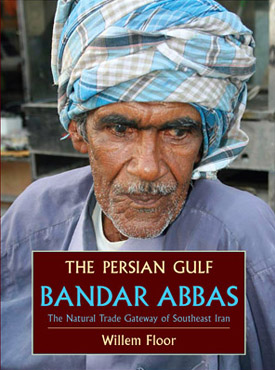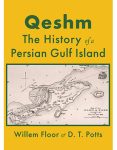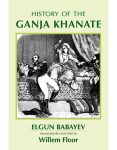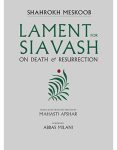About the Book
Bandar Abbas, once a small fishing village, became the gateway port for Iran after Shah Abbas defeated the Portuguese in 1622. However, with the fall of the Safavids and the withdrawal of the British East India Company in 1759 the port went into decline; by 1793 Bandar Abbas was under the direct control of Oman. In 1869 Iran had to resort to force of arms to take it back from Oman.
Yet, this important port is hardly mentioned in the histories of Iran. For the first time in Bandar Abbas: The Natural Trade Gateway of Southeast Iran, Willem Floor, using primary sources, analyses the port’s morphology, population, water supply, health, education, and living conditions during the Qajar period. Furthermore, he discusses in detail how Bandar Abbas came under Omani control; how the Qajars assumed direct control; as well as the town’s vicissitudes under a parliamentary governed Iran, and the new centralizing Pahlavi state.
The book also gives a detailed analysis of the nature of Bandar Abbas’s trade and the reasons for its ups and downs; the role of European political and economic activities; central government institutions that were present in Bandar Abbas and the many new institutions that were created in the twentieth century. A similar comprehensive analysis is offered for Minab (a nearby town) with which Bandar Abbas had a symbiotic relationship that changed in the twentieth century.
Based on primary sources this study of a major Persian Gulf port offers a comprehensive view of the “growing-up” pains Iran had to suffer to find its way into a modernizing world.
The previous volumes of the series are: The Persian Gulf: A Political and Economic History of 5 Port Cities, 1500–1750; The Rise of the Gulf Arabs, The Politics of Trade on the Persian Littoral, 1747–1792; The Rise and Fall of Bandar-e Lengeh, The Distribution Center for the Arabian Coast, 1750–1930
About the Author
Willem Floor studied development economics and non-western sociology, as well as Persian, Arabic and Islamology from 1963-67 at the University of Utrecht (the Netherlands). He received his doctoral degree from the University of Leiden in 1971. Since 1983, Dr. Floor was employed by the World Bank as an energy specialist, however, after his retirement in 2002, he has dedicated his time to the study of the social and political history of Iran, and has published extensively throughout this time. His books include: Public Health in Qajar Iran, Agriculture in Qajar Iran, and The History of Theater in Iran, as well as, The Persian Gulf: A Political and Economic History of 5 Port Cities, 1500-1730, its second volume, Persian Gulf: The Rise of the Gulf Arabs, 1747-1792, third volume, The Rise and Fall of Bandar-e Lengeh, the fourth volume, Bandar Abbas: The Natural Gateway of Southeast Iran, and the fifth volume, The Persian Gulf: Links with the Hinterland Bushehr, Borazjan, Kazerun, Banu Ka’b, & Bandar Abbas, The Persian Gulf: The Hula Arabs of The Shibkuh Coast of Iran, and The Persian Gulf: Dutch-Omani Relations A Commercial & Political History 1651-1806, and The Persian Gulf: Muscat – City, Society and Trade . He has also published, Travels Through Northern Persia, 1770-1774, Titles and Emoluments in Safavid Iran, and A Social History of Sexual Relations in Iran; Labor and Industry in Iran, 1850-1941; Guilds, Merchants and Ulama in 19th Century Iran; The Rise and Fall of Nader Shah; Games Persians Play, and History of Bread in Iran. His translations include: Samuel Gottlieb Gmelin’s Travels Through Northern Persia 1770–1774 , and with Hasan Javadi, Abbas Qoli Aqa Bakikhanov’s The Heavenly Rose-Garden: A History of Shirvan & Daghestan; Evliya Chelebi’s Travels in Iran and the Caucasus, 1647 and 1654; A Man of Two Worlds: Pedros Bedik in Iran, 1670–1675, and Awake: A Moslem Woman’s Rare Memoir of Her Life and Partnership with the Editor of Molla Nasreddin, the Most Influential Satirical Journal of the Caucasus and Iran, 1907–1931
Willem Floor was invited to Tehran in February, 2017 and presented with the Farabi International Prize for Humanitarian Studies.








